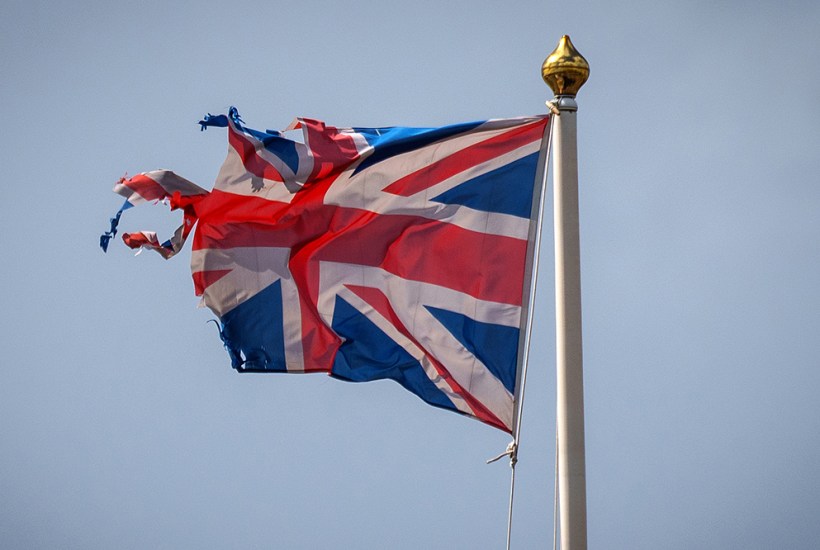Long-time readers may recall that I take a special interest in the art of corruption. And this week America has thrown up a delicious example. Democrat Senator Robert Menendez was indicted last week on bribery charges. This follows a raid on the New Jersey Senator’s home in which federal agents found more than $480,000 hidden in clothing and piled up in his closets. The agents also found 13 gold bars.
Menendez denies the charges and said on Monday that it has simply been his habit, for some years, to take thousands of dollars in cash from his personal savings account and store it around the house. He says that he kept it ‘for emergencies, and because of the history of my family facing confiscation in Cuba’. It is a strange defence, not least because keeping large wads of cash in your home is probably the easiest way to facilitate the confiscation of said money. This is called ‘burglary’, and is far more common in New Jersey than Cuban-style coups. Furthermore, during a search of his computer the Feds discovered that last year – after Menendez was allegedly in receipt of gold bullion from some Egyptians – Menendez used Google to look up ‘kilo of gold price’.
Doubtless he will be able to explain that he took a senatorial interest in the fluctuating price of rare metals and could often be found late at night researching the matter. But many people in America – including Democrats – are not confident about his defence. Still his party colleagues have stuck beside him. And I mention this not just because corruption exposed (or allegedly exposed, as the lawyers would have me say) should always be a good thing. I mention it because we in Britain should count our blessings where we can. And if there is one blessing that we can count here, it is that we do not have a tradition of serious political corruption.
I know that at this point various FBPE types will insist that there has been massive corruption in recent years and that the Johnson Junta only pushed through Brexit in order to enrich themselves, or some such. But in fact British politics really is pretty clean by comparison with even our closest allies and neighbours.
Of course there is the perennial issue of party funding. But it seems to me that if a foreign company or foreign entity tried to approach MPs and bribe them with gold bars and cash (as is alleged in the Menendez case) then alarm bells would pretty promptly ring. Plus there is the fact that British hacks have an unusually good line in exposing any potentially corrupt MPs by inviting them to speak more closely into the briefcase beside them or the pleasant tie-pin that their interviewer is wearing.
You have to go back to the ‘Cash for questions’ scandal in the 1990s for the last time that parliament was seriously accused of being ‘up for sale’. The now late Mohamed Fayed certainly seemed to think that he could buy influence in the UK in the way that another group of Egyptians are accused of funding Menendez to get theirs.
Possibly it is a matter of scale. Just as I pointed out the other week that there is not all that much point in shagging a British MP to obtain juicy secrets, so you may say it isn’t worth bribing a politician in Britain in order to get political influence. What would it profit you if you get a few MPs on the books? It’s not like getting some senators in Washington.
The truth is that there is just a massive difference of scale between the cultures that have grown up in Washington and Westminster. In Westminster the Register of Members’ Interests really does seem to have a regulating effect on MPs’ behaviour. Whenever one of our politicians receives even the smallest amount of hospitality – complimentary tickets to a football match, for example – then into the register it must go. When someone is found to have forgotten to have put something in – as Chris Bryant did some time ago – they generally have to acknowledge their fault. For instance, Bryant referred himself to the Standards Committee a couple of years ago because he had failed to register an earlier visit to Poland paid for by the British Council. When such things happen, they are embarrassing, of course. But it would be a stretch to pretend that people only go into politics in the UK simply in order to enrich themselves and enjoy all-expenses-paid trips to Krakow. In fact the main emotion one feels when looking through the declarations of MPs’ interests is sadness at just how paltry most of the declarations are. There may be the odd exception, but in the main the register does not show the life of an MP to be one of unadulterated pleasure and wealth creation.
By contrast, in the US House and Senate, money positively swills around. Take the 83-year-old former leader of the House Nancy Pelosi. After decades in politics, in 2008 Pelosi’s net worth was estimated to be around $30 million. In 2021 it was an astonishing $170 million, meaning that during a decade in which most of us suffered, Pelosi managed to rake in another $140 million. It helps that her husband has been a prolific stock trader and that he seems to have had an extraordinary knack of knowing what to buy and when.
Of course some people do go down for corruption. Rep. Duke Cunningham did in 2006, as did Rep. Bob Ney in 2007 for taking bribes in the Jack Abramoff scandal.
While I know that in the great scheme of things, ‘We’re not really corrupt’ isn’t the greatest selling point for a nation, and that one should aspire to more, it is something to be proud of. Our politicians have a hard enough time. So let us at least pay them the courtesy of acknowledging that in this case at least their closets are bare.
Got something to add? Join the discussion and comment below.
Get 10 issues for just $10
Subscribe to The Spectator Australia today for the next 10 magazine issues, plus full online access, for just $10.
You might disagree with half of it, but you’ll enjoy reading all of it. Try your first month for free, then just $2 a week for the remainder of your first year.















Comments
Don't miss out
Join the conversation with other Spectator Australia readers. Subscribe to leave a comment.
SUBSCRIBEAlready a subscriber? Log in